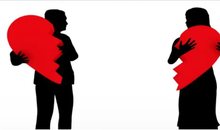
 Flash News
Flash News
6 disturbing cases of hate speech on the screen, sociologist Tushi: The media tends towards the spectacular, forgets the human mission

Derogatory language that is used against different categories during media reports is a growing concern in our country.
During 2023, quite a few cases were identified by the Commissioner for Protection from Discrimination.
Contacted by Politiko.al, this institution has made available the report where 6 cases were examined, in which discrimination was claimed by the leaders of the shows or the participants/guests in them.
Currently, the KMD has closed with a decision 3 complaints and continues the investigation procedure for 3 other complaints, specifically on the screen of TCH, Syri tv, MCN, etc., but in this article we will focus on one of them.
The case of lawyer Ngjela: "Even when a woman is raped, she surrenders from pleasure"

The lawyer Spartak Ngjela shocked with a statement during an interview on the show 'Let me speak', on Top Channel, stating that "a woman or girl even when she is raped surrenders from pleasure".
According to the Commissioner, in this case, discrimination was found in the form of hate speech due to gender by a guest on the television show, after a complaint filed by the Association "For Social Justice".
What happened at the hearing between the parties
On 04.07.2023, the parties were invited to a hearing, at the Commissioner's Office, with the presence of representatives of the complaining party: G. S, Chairman of the Association, as well as of the parties against whom the complaint was filed: lawyer Ngjela, personally and two representatives of Top Channel.
During the session, the representatives of Top Channel emphasized that they have taken measures to remove the part where the lawyer expresses what the Association has complained about, clarifying that the link has become private and is not accessible to the general public.
On the part of the complaining party, it was requested that if there was a public apology from Njjela, they would withdraw from the complaint, but according to the Commissioner, there was no reaction within the measures taken by him to request a public apology.
Thus, the KMD has declared the administrative procedure for the part of the complaint related to the claims raised against Top Channel National Television completed without a final decision, as the effectiveness and purpose for which the investigative procedure had been initiated against this subject has been achieved.
According to the decision, lawyer Ngjela has consumed the discriminatory behavior and has been asked to make a public statement by which he distances himself from the use of hate speech and avoids its use in the future.
Sociologist Tushi: The media often tends towards the spectacular, forgets the human mission

Sociologu Gëzim Tushi ka bërë një analizë të zgjeruar në Politiko.al sa i takon gjuhës diskriminuese që haset shpesh në mediat shqiptare.
Sipas tij, media dhe opinion publik duhen ndërgjegjësuar, duke pranuar se niveli i dhunës mbi gratë shqiptare nuk është thjesht një problem gjinor.
Përkundrazi, sipas tij ajo duhet parë, vlerësuar dhe interpretuar si shprehje e nivelit të qytetërimit tonë.
“Unë mendoj se ka ardhur moment kur në “ideologjinë e medias” duhet rrënjosur koncepti modern i trajtimit të dhunës mbi gratë.
Kjo kërkon bindjen e fortë dhe profesionalisht të rrënjosur se kjo dhunë që ushtrohet në mënyrë të gjerë dhe sistematike, për shoqërisë shqiptare nuk është problem anësor dhe periferik, por thelbësor dhe me peshë sociale.
Dhuna mbi gratë në të gjitha format e saj, fizike, verbale, emocionale apo e “përzier” është bërë një “limfë sociale” që rrjedh me intensitet të lartë në shoqërinë tonë. Në familje dhe jashtë saj, në habitate private dhe ambiente publike.
Ekzistenca e këtij niveli të dhunës është një “turp social” i cili shpesh herë në media dhe biseda private apo debate publike trajtohet në mënyrë sempliste duke e konsideruar si “problem kulturor” dhe jo ashtu sikurse është në të vërtetë një problem i pastër kriminal. Shpeshherë në trajtimet mediatike ka një kakofoni konceptuale dhe një ambiguitet terminologjik dhe qëndrimesh që sjellin “argument” të natyrës zbutëse apo justifikuese për ekzistencën e dhunës dhe krimit mbi gratë.
Kjo krijon një mbulesë, një “pelerinë” sociale dhe mediatike që i vendos këtij fenomeni shpesh herë terma të gabuara apo sfumime mediatike, që zbusin artificialisht efektet degraduese të dhunës mbi gratë. Madje nganjëherë deri në nivelin e degradimit të “statusit shoqëror” të gruas duke e trajtuar në mënyrë të gabuar dhunën, shpesh herë deri në nivele kritike justifikuese e antihumane”, thotë Tushi.
Sociologu thotë se ka raste kur nga trajtimi semplist mediatik, tek njerëzit, sidomos tek meshkujt e dhunshëm, krijohet ideja se dhunë është “çështje e jetës private” dhe jo “çështje publike” sociale dhe mediatike.
“Nëse problemin e paragjykimeve e shohim më gjërë, sociologjikisht konstatoj se në përgjithësi ndihet nevoja e zgjeruar e një “vigjilence mediatike” për fjalë, fraza, e qëndrime paragjykuese maskiliste, racore, seksiste e kulturore.
Në jo pak raste në media shpëtojnë fjalë e fjali që shfaqen si recidiva të paragjykimeve të tilla. Gjuha pezhorative, përçmuese, diskriminuese është akoma një substance sociale e mediatike “toksike” që qarkullon në hapësirën publike e mediatike.
E sjellë në raste të caktuara nga gazetarët apo në të shumtën e rasteve nga të ftuarit. Sidomos evidente është kjo “patologji” sociale e mediatike kur flitet për të drejtat e njerëzve për shkak të orientimit seksual të tyre, për njerëz që kanë probleme të shëndetit mendor apo kanë vartësi nga lëndët prikotrope (drogë dhe alkool)”, thekson sociologu.
"The media cannot allow the spread of "prejudicial acids" on its screens. It cannot become an ally of public opinion that exhibits mediocrity, thus violating the main professional principles of its deotology.
It happens that journalists or media specialists forget the human mission because they tend towards the sensational and the spectacular even though it can be harmful from the social side. This must be corrected...", appeals Tushi.
Similar cases during 2023

As for the complaints for which the review procedure continues, the Commissioner has found similar cases of discrimination in the media.
Specifically:
1. "Wear my shoes" Association, against the Xhadat Show, on MCN TV, alleging discrimination on the basis of ethnicity, where, among other things, the language of hatred towards the Roma Community in Albania is used.
In this show, one of the speakers (humorous journalists), among other things, said "...he made it with concrete, because if he made iron, they would come to the kurbeter and sell it to him", the term kurbeter is a discriminatory and derogatory term for the community Rom used in the city of Korça, also the context of this video shows discriminatory labels for this minority. This video continues to be on Facebook and MCN. TV, website.
2. The Center for Community Action, against the Top Story Show, Top Channel, claims discrimination due to race and ethnicity, as during the show the guest A.T and then the presenter G.D used and spoke in pejorative and derogatory terms such as "Jevgjitkat of Albania".
3. Subject A. F., against Emisioni Stop, Klan Tv, alleged discrimination due to disability.
According to experts, the competition for following and the thirst for more clicks has brought a series of problems in audiovisual and online media, harming public information.
Experts insist that this phenomenon be reduced to avoid serious consequences in the future for the public./ Punoi: S.F. Gjidede


Latest news


Two vehicles collide on the Elbasan-Peqin axis, drivers injured
2025-07-05 19:26:29

What does Zelenskyy have more than Zegjineja?
2025-07-05 18:45:26

Fiscal peace, but at a cost
2025-07-05 18:00:10
'Bankers' tax evasion, Chinese CEO and former director jailed
2025-07-05 17:39:21
Kyle Walker joins English club on two-year deal
2025-07-05 17:20:24
Two cars collide on the Saranda-Delvina axis, 4 injured
2025-07-05 17:05:29
Touching gesture! Liverpool will pay Jota's family's salary until 2027
2025-07-05 16:45:18
The zodiac signs that cheat most often
2025-07-05 16:25:53

"I asked for the dismissals", Dredha tries to soften Rama's 'blow' in Vlora
2025-07-05 15:48:49
Bomb threat in Parliament, prosecutor: It was a lie
2025-07-05 15:22:28

Bardhi: The recount revealed how greedy Zeqine Balluku is in stealing
2025-07-05 14:44:29
Knife wound on the secondary road Tirana-Durrës, perpetrator sought
2025-07-05 14:37:54
Tears and pain, Diogo Jota is escorted to his final home
2025-07-05 14:21:34
Success starts with yourself! Simple ways to invest in personal development
2025-07-05 13:58:50
Unlicensed firearms found in apartment, 50-year-old arrested in Lushnje
2025-07-05 13:43:11

Tirana Court remands Skerdi Sina to prison
2025-07-05 12:59:34
Cocaine laboratory in Greece, here are the Albanians arrested and wanted
2025-07-05 12:40:16
Directed Justice/Vangjeli: SPAK does not investigate any scandal involving Rama
2025-07-05 12:22:03

Bomb alert, Police remove MPs and media from Kosovo Parliament building
2025-07-05 11:48:16
"The will of the people" and the irony of ordered resignations
2025-07-05 11:32:05
Summer drowning risk: How to enjoy the water without risking your life
2025-07-05 11:20:27
Fire situation in the country, 16 fires reported in 24 hours, 4 still active
2025-07-05 11:07:04
Car hits pedestrian at white lines, injured in serious condition in Vlora
2025-07-05 10:59:58
Mosquito-borne diseases are a growing problem in Europe
2025-07-05 10:44:13



One of Sweden's most dangerous and wanted criminals arrested in Turkey
2025-07-05 09:38:29
Foreign exchange/ How much foreign currencies are bought and sold today
2025-07-05 09:18:38

"Don't be influenced by the opinions of others", today's horoscope
2025-07-05 08:40:50

Morning Post/ In 2 lines: What mattered yesterday in Albania
2025-07-05 08:02:07

Trump says he's ready to raise tariffs to 70% on some countries
2025-07-04 22:35:52
Tre shenjat e zodiakut që do ‘pasurohen’ në Korrik
2025-07-04 22:05:09
Gaza War: Hamas Accepts US Proposal for 60-Day Ceasefire
2025-07-04 21:50:10
Autocracy in Albania, Fuga: Governance has gotten out of control
2025-07-04 21:40:51
Meta: Agriculture on credit, the new fraud!
2025-07-04 21:26:39




Vote recount in Durrës ends without changes
2025-07-04 20:12:54
Gas station explodes in Rome, 25 injured (VIDEO)
2025-07-04 20:00:20

These afternoon habits often sabotage weight loss
2025-07-04 19:39:28
Former Arsenal player Thomas Partey accused of rape
2025-07-04 19:24:21
Shepherd disappears without a trace in Delvina
2025-07-04 19:14:31

Bardho gave Zegjine's mandate/Braho: Unfair! It violates the electoral system
2025-07-04 19:01:08


Rapid developments in the Sultanates!
2025-07-04 18:00:06



Italy tightens rules for skateboard traffic
2025-07-04 17:20:18

Unusual for the time, dense fog covers the coast of Vlora
2025-07-04 16:48:01


Accident on the Shkodra-Lezhë axis, one dead and 3 injured
2025-07-04 16:14:19
Albania with fewer requests for asylum and Albanian citizenship in 2024
2025-07-04 16:06:57

Albania last for quality of life, DP: Technical government is the solution!
2025-07-04 15:42:30
Nico Williams says "No" to Barcelona, signs with Athletic Club until 2035
2025-07-04 15:33:35
Fires in the country, four fires are still active, what is the situation?
2025-07-04 15:24:20

Summer brings big changes for these 4 zodiac signs
2025-07-04 15:00:04
Osmani: MPs need to agree to a secret ballot for the Speaker of Parliament
2025-07-04 14:51:09
Serious accident on the Peqin-Elbasan axis, two injured
2025-07-04 14:37:56

GJKKO leaves in force the security measure for the head of the KPP
2025-07-04 13:58:17
Who will replace Ilir Meta and take over the leadership of the PL?
2025-07-04 13:50:36
Berisha: Dismissal of directors in Vlora, another act of 'scapegoats'
2025-07-04 13:41:46




Librazhd/ In a serious psychological state, the young man consumes pesticides
2025-07-04 13:05:07


Weapons trafficked from Kosovo to Albania, two arrested, 8 pistols seized
2025-07-04 12:33:28
Konsumimi i tepërt i çokollatës, ja cilat janë dëmet që shkakton në organizëm
2025-07-04 12:23:35

Fires in the country, 21 fires in the last 24 hours, 4 still active
2025-07-04 12:00:19
WB calls for debt transparency: Albania to publish details of every loan
2025-07-04 11:50:05
Changes in the State Police, new names expected to lead 5 police stations
2025-07-04 11:40:06

The race for the head of the BKH, the third phase on July 11
2025-07-04 11:20:23

